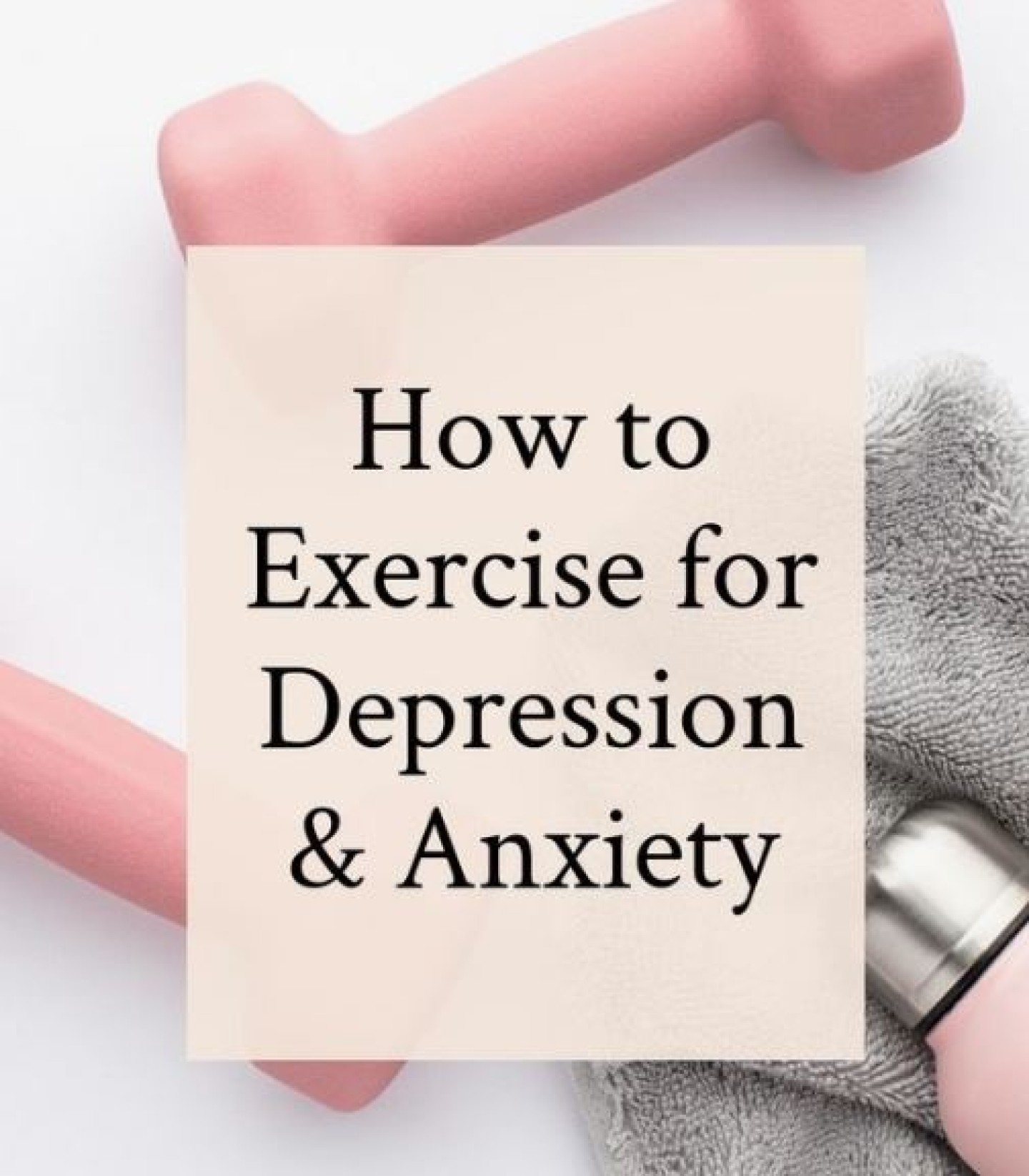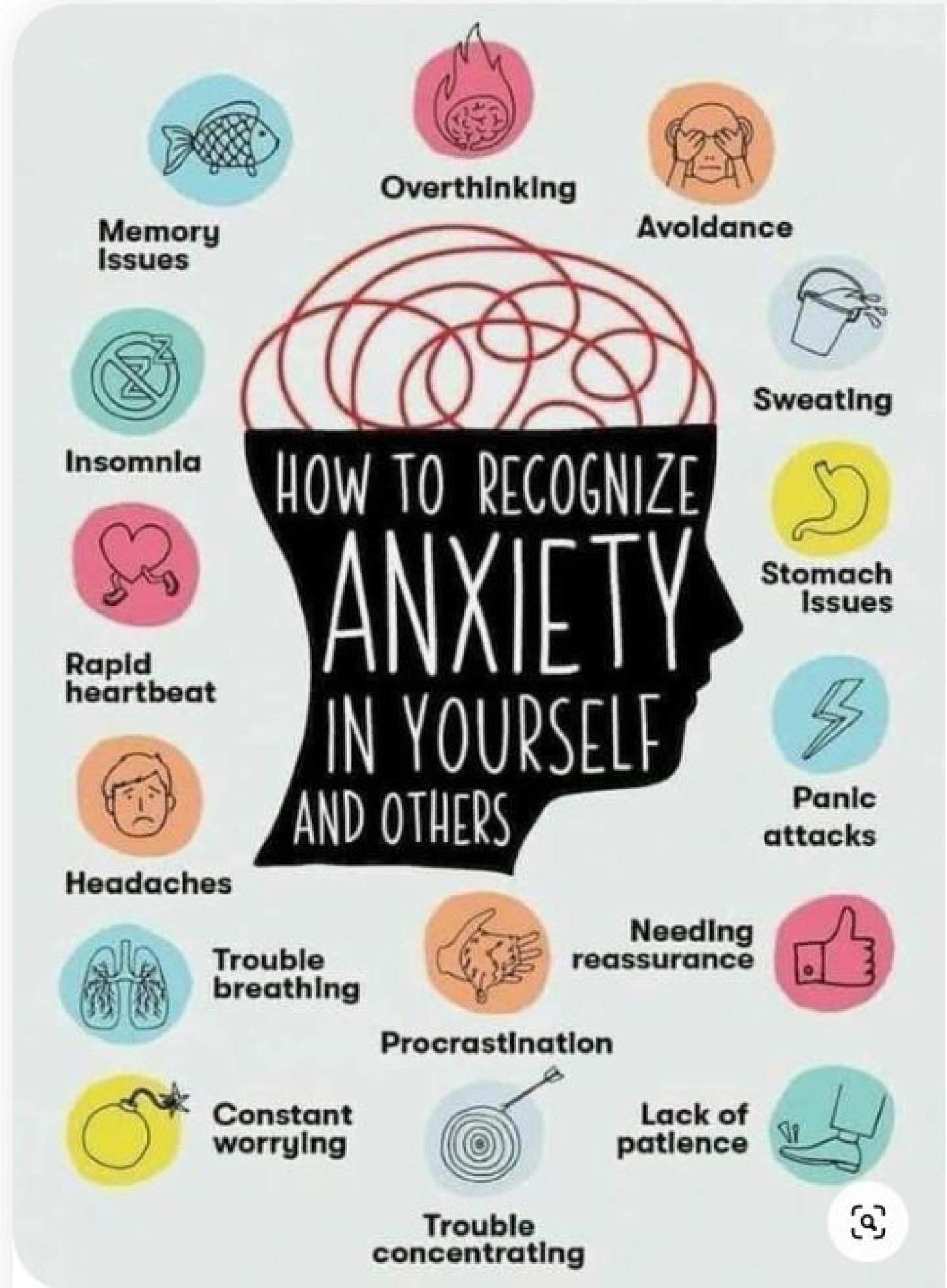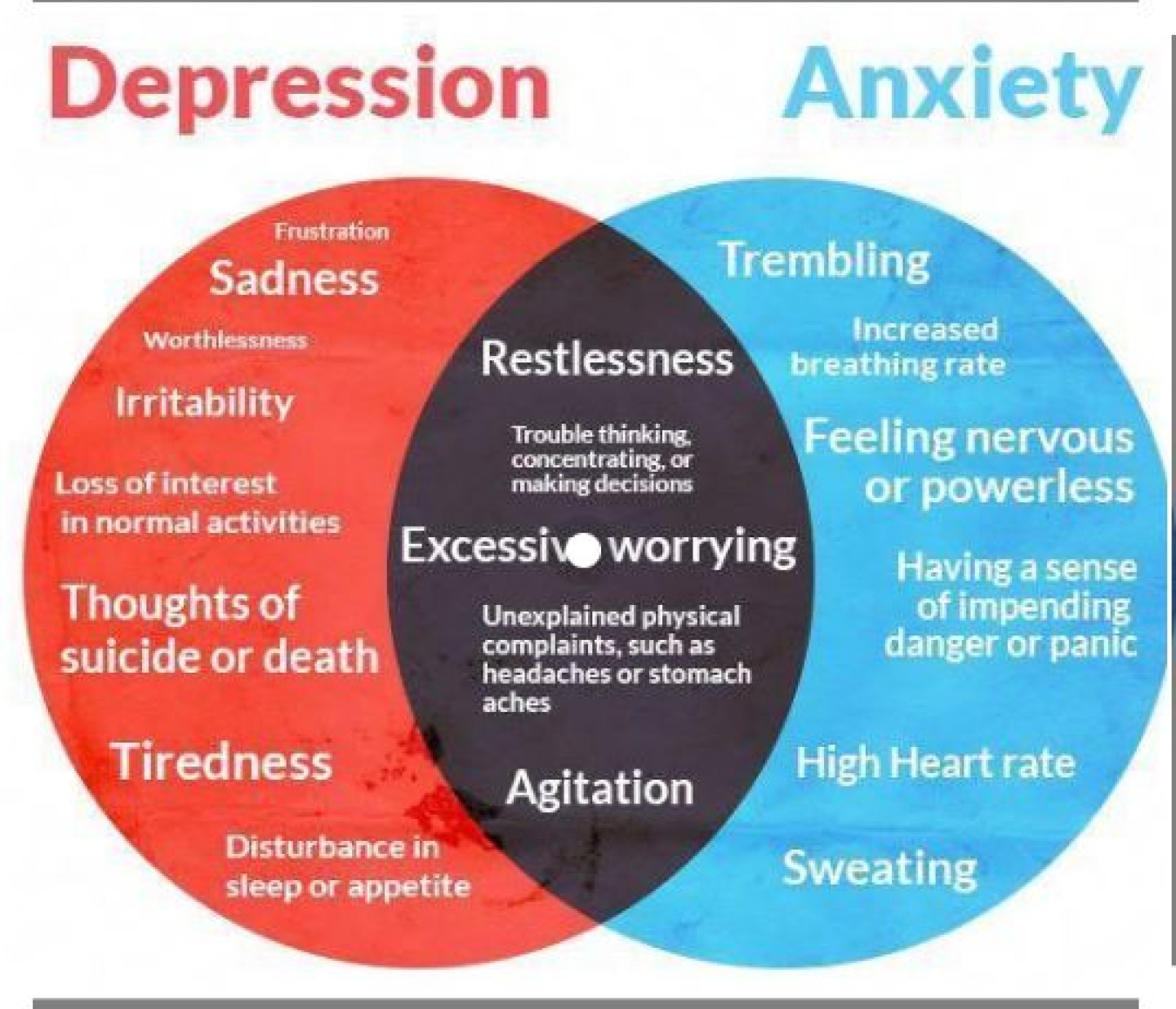Keep reading to find out how to have a balanced exercise routine that supports you mentally and physically.
We all know that regular exercise is one of the best things you can do support your physical health. Countless research studies have documented the health benefits of exercise, ranging from increased strength and energy to decreased risk of diabetes and even all-cause-mortality.
In my practice, I talk about exercise a lot as it relates to mental health. Exercise is my number one recommendation when it comes to boosting your mood, increasing energy, and managing stress. Studies have even found that exercise may be just as effective as anti-anxiety and antidepressant medications in treating and preventing mild-to-moderate depression and anxiety (1).
When it comes to the mental health benefits of exercise, it’s important to keep in mind that more exercise doesn’t always mean more benefits. Overexercising can actually make your mental and physical health worse, especially if you suffer with anxiety, depression, disordered eating/eating disorders, poor body image, and hormone imbalances.
So how much is too much when it comes to exercise? And how can you reap the benefits of exercise for mental health without overdoing it? Keep reading to learn how to support your mental health with a balanced exercise routine.
The Science Behind Exercise and Mental Health
First let’s start with why exercise is so important for mental health. If you struggle with concentrating, depression, anxiety, stress, and/or addiction there are a ton of science-backed reasons why you should start exercising to support your mental health.
01 - IMPROVES MEMORY AND LEARNING
Several studies in animals and humans have found that exercise increases the number of new neurons in the brain, a process known as neurogenesis.
Physical activity increases brain-derived neurotrophic factor (BDNF), a growth factor that stimulates neuron growth and protects against neuron degeneration. Neurogenesis has been found to increase brain volume and improve learning and memory.
Declining neurogenesis may also be implicated in the development of certain mental illnesses, including Alzheimer's disease, schizophrenia, and depression.
02 - ACTS AS A NATURAL ANTIDEPRESSANT
Scientists have yet to understand the specific causes of depression, but have identified several neurotransmitters that are involved in the development of the of the disease.
Serotonin is a powerful neurotransmitter that is targeted in many antidepressant medications, including selective serotonin reuptake inhibitors or SSRIs. Serotonin helps us feel motivated and increases our willpower and mood.
Exercise and movement in general, increases the release of serotonin, which has a natural antidepressant effect on the brain. Serotonin also has the added bonus of stimulating the production of BDNF and neurogenesis!
03 - INCREASES CONCENTRATION
Deep thinking and concentration are functions of the brain's norepinephrine system. Norepinephrine is a neurotransmitter involved in the body's stress response that has several functions, including enhancing concentration and focus.
Some antidepressant medications also target the norepinephrine system. Exercise increases the release of norepinephrine, especially intense physical activity, helping you to feel focused and productive.
04 - REDUCES PAIN + ANXIETY
Ever wonder where the term "runner's high" comes from? Physical activity actually causes your brain to release the same neurotransmitters that are responsible for the "high" sensation felt with opiate and marijuana use.
These neurotransmitters are called endorphins, which have the powerful effect of reducing pain and relieving anxiety. Endorphin release also increases with the intensity of exercise, so the more you sweat the happier (or higher) you feel.
This is also one of the reasons why it can be hard to know when you are overexercising. Your endorphins can mask some of the symptoms of pushing your body too hard, but more on this soon…
Physical activity also activates the endocannabinoid system, further reducing pain sensitivity and providing an improved sense of well-being.
05 - HELPS TO MANAGE ANXIETY
Several studies have found that exercise can help decrease your sensitivity to anxiety. In other words, people who exercise regularly are less likely to experience anxiety in moments of perceived stress. Exercise stimulates the stress response in a similar way that anxiety does - increased heart rate, sweating, increased breathing rate.
Researchers theorize that exposing someone with high anxiety sensitivity to the physiological symptoms they fear, such as rapid heartbeat, in the context of physical exercise increases their tolerance for such symptoms.
06 - HELPS WITH ADDICTION
Dopamine is the brain's primary neurotransmitter involved in addiction. The brain releases dopamine in response to a pleasurable stimulus. Addictive substances, foods, and behaviors can cause a quick and intense release of dopamine into the brain.
Repeated exposure to that substance, food, or behavior can eventually cause a physiological addiction.
Studies have found that just 10 minutes of physical activity can significantly alter dopamine circuits and increase your willpower to avoid addictive substances, foods, and behaviors.
Bottom Line
Regular exercise supports mental health and wellbeing in several different ways, including boosting your mood, decreasing anxiety, improving focus, memory and learning, and helping with addiction.
How to Find a Balanced Exercise Routine
Even though exercise is one of the best ways to manage your mental health, you can overdo it and actually make your mental health worse!
A new research study published in The Lancet Psychiatry looked at data from 1.2 million people in the US to learn more about which types and how much exercise has the most benefits for mental health.
The study found that team-oriented sports, cycling, and aerobic exercise for 30 - 60 minutes, 3 - 5 times a week had the most benefits for mental health. People who practiced this exercise routine reported having fewer days of poor mental health, especially those who were diagnosed with depression.
The study also found that any type of physical activity, including chores around the house, walking, gardening, etc. had a positive impact on mental health. Overall, people who exercised regularly had a 43% decrease in poor mental health days per month.
Recommended Reading: Tips and Tricks for Consistent Exercise
Interestingly, the study also found that exercising more than 23 times a month or for longer than 1.5 hours was associated with worse mental health.
It’s important to keep in mind that, like most things in wellness, there is no one size fits all routine for exercise and it takes experimenting and some trial and error to find out the best plan for you.
That being said, there are some common symptoms of overexercising that you should look out for. Especially if you suffer from anxiety, depression, disordered eating/eating disorders, body image issues, and hormone imbalances.
-
Persistent aches and pains in your muscles and/or joints - it’s normal to feel sore 24 - 48 hours after a workout, but if your muscles and joints hurt all the time this is a sign you are working your body too hard and not getting enough time for rest and recovery.
-
Feeling light-headed or dizzy on workout days - this is a classic sign of overexercising and also under eating. Your blood sugar or blood pressure might be dropping too low because you are not getting enough carbohydrate or electrolytes, respectively. Bottom line - if you want do more intense exercise, you have to fuel and hydrate appropriately.
-
Frequent headaches on workout days - this is another sign you might be overexercising, under eating, not hydrating enough and/or not sleeping enough to support a more intense workout routine.
-
Having difficulty getting through a workout - While it’s true that pushing your limits at the gym can help you get stronger and build more muscle. It’s also true that pushing yourself too hard can cause more stress on the body. If you can’t make it through a workout, then try scaling back the intensity and build your way up to harder workouts as you get stronger. You should feel energized, not chronically fatigued when exercising.
-
Difficulty breathing - This could be a sign of iron deficiency anemia or other conditions that may limit your ability to get enough oxygen (ex. sleep apnea). Make sure you correct these deficiencies before you do intense cardio.
-
Prioritizing workouts over sleep - Sleep is an essential component of recovery. If you aren’t getting a good night’s sleep you should limit intense physical activity and opt for more gentle movement like walking, stretching, strength training, yoga, or pilates.
-
Repeat injuries and/or sickness - Overexercising can cause immunosuppression, making you more prone to getting sick. Constant wear and tear on your muscles, bones, and ligaments without adequate rest and recovery also makes you more prone to injury.
-
Changes in your menstrual cycle and/or libido - Amenorrhea and dysmenorrhea are two of the biggest signs that you are working your body too hard. If you stop getting your period or your period starts to come less often, this is a sign that exercise is impacting your hormones. Overexercising can also cause inflammation that decreases your libido.
-
Weight gain - Overexercise can trigger intense hunger, which can lead to overeating and even binge eating. Too much exercise stimulates inflammation that decreases thyroid function and increases stress hormones, both of which can cause weight gain.
You can read more about the science behind overexercise in this great article by Laura Schoenfeld, RD: Are you overtraining? 9 Important signs that you need to exercise less.
Bottom Line
Exercise should be used as a tool to support your physical and mental health, and not as a way to punish your body. You should feel energized and strong after a workout, not tired and weak. The goal is to train smarter, not harder and find a balanced exercise routine that works for your body, mind, and lifestyle.





